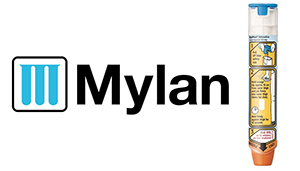 Shares in Mylan (NSDQ:MYL) rose today after the EpiPen-maker met expectations on Wall Street with its 4th quarter results.
Shares in Mylan (NSDQ:MYL) rose today after the EpiPen-maker met expectations on Wall Street with its 4th quarter results.
The Canonsburg, Pa.-based company posted profits of $417.5 million, or $1.57 per share, on sales of $3.27 billion for the 3 months ended Dec. 31, for bottom-line growth of 114.5% on sales growth of 31.3% compared with the same period last year.
Adjusted to exclude 1-time items, earnings per share were $1.57, ahead of consensus on The Street, where analysts were looking for sales of $2.37 billion.
“Our strong 2016 results were highlighted by year-over-year constant-currency total revenue growth of 18% and adjusted EPS growth of 14%,” CEO Heather Bresch said in prepared remarks. “The 4th quarter capped off the year with impressive revenue growth of 31% and adjusted EPS growth of 29%. Again, we saw all of our regions contribute to our results for the year, with double-digit revenue increases in North America, Europe and rest of world, reflecting the resilience, differentiation and diversity of our global platform and our unwavering focus on execution. The diversity of our business was further demonstrated by our 6 global therapeutic franchises that delivered approximately $1 billion or more in revenue: respiratory and allergy, CNS and anesthesia, infectious disease, cardiovascular, gastrointestinal, and diabetes and metabolism. We look forward in 2017 to delivering yet another strong year of performance, with anticipated 2017 revenues of $12.25 billion to $13.75 billion and adjusted EPS of $5.15 to $5.55. We also continue to advance toward our long-stated 2018 adjusted EPS target of $6.00.”
MYL shares were trading at $44.85 apiece today in mid-morning activity, up 6.9%.
Mylan has been under fire since August when reports revealed it hiked the price of its EpiPen device 500% since it acquired the auto-injector in 2007. In response to widespread criticism from politicians and lawmakers, Mylan said that it would launch a discounted generic version of the device and expand its patient assistance program.
In mid-December, the company announced that its generic EpiPen will sell for $300 per two-pack, which is a 50% discount compared to the price of the brand name device.
The company said in October last year that it agreed to pay $465 million to settle claims that it underpaid Medicaid for its EpiPen auto-injector by misclassifying the device as a generic. The Centers for Medicare & Medicaid Services said it spent $797 million on the emergency allergy treatment between 2011 and 2015, including rebates.
Seema Verma, the nominee to head the Centers for Medicare & Medicaid, said at her confirmation hearing earlier this month that she would like to review the way pharmaceutical companies classify products as generic or branded, citing the case of Mylan’s EpiPen emergency allergy device.

